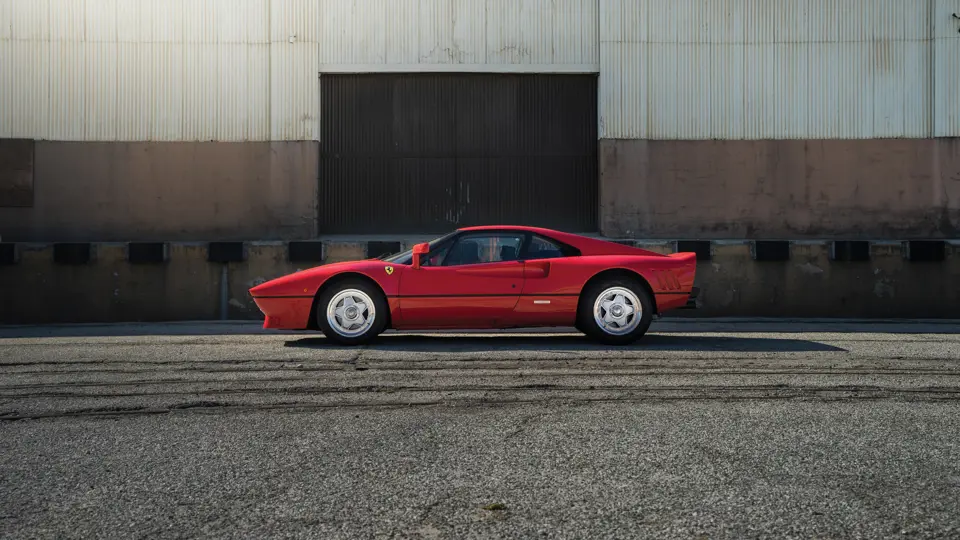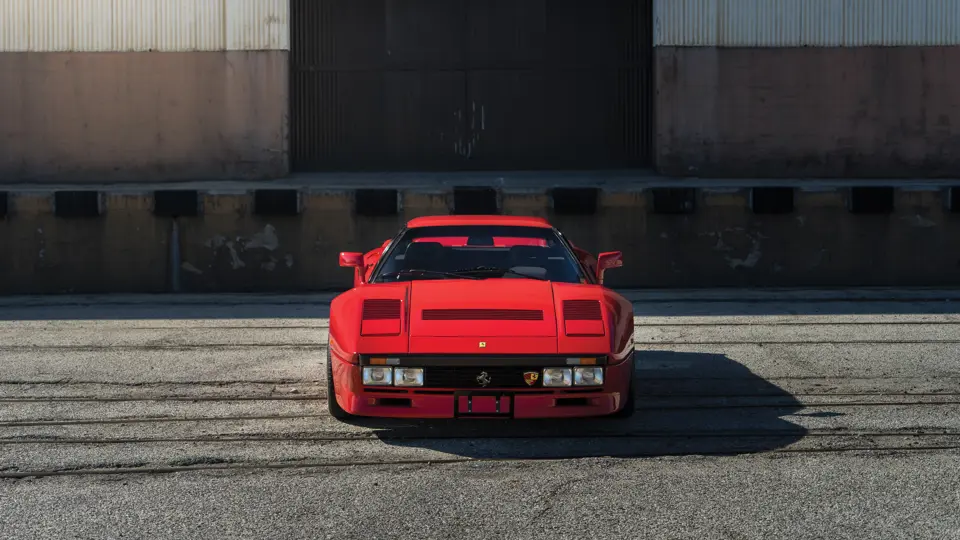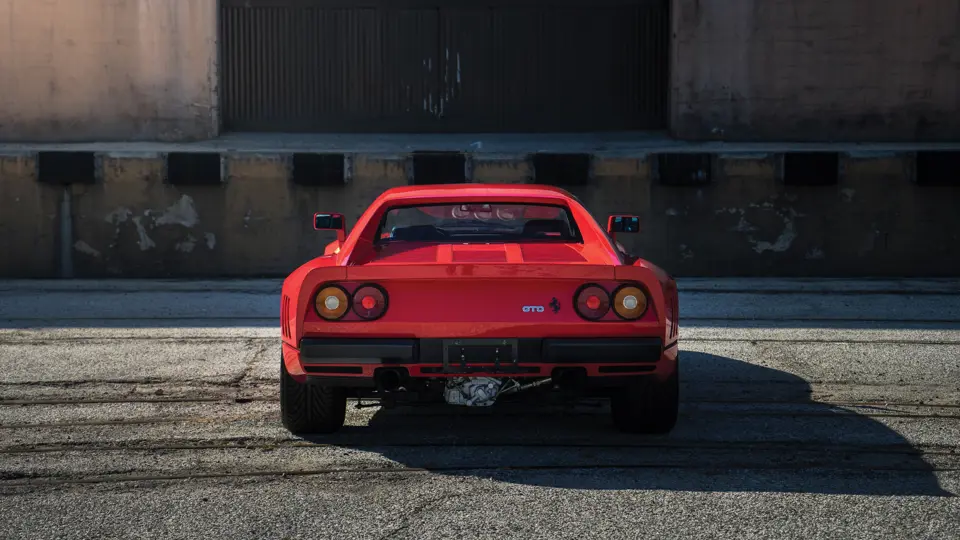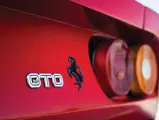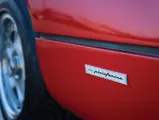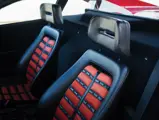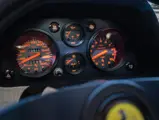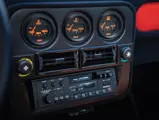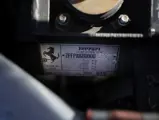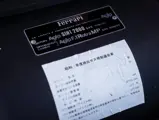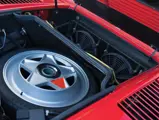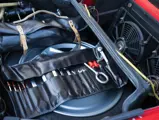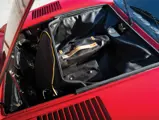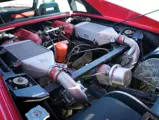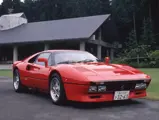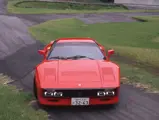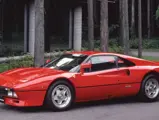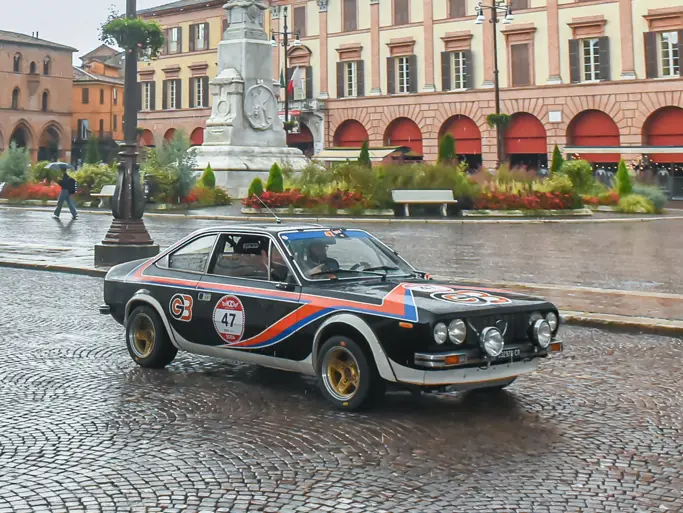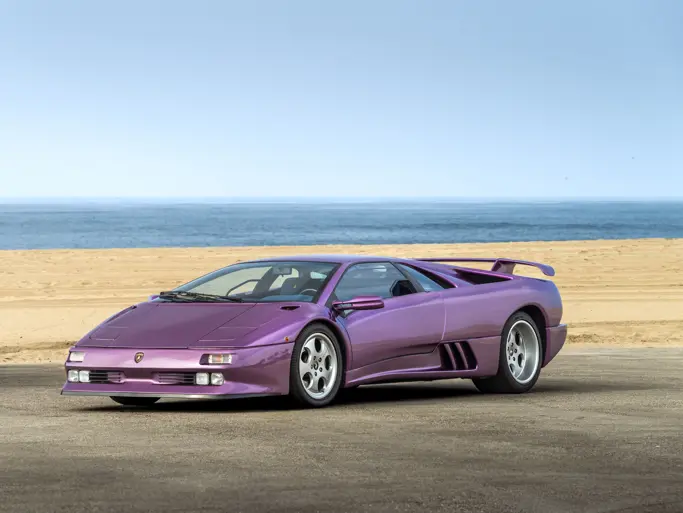
1984 Ferrari 288 GTO
{{lr.item.text}}
$2,585,000 USD | Sold
{{bidding.lot.reserveStatusFormatted}}
- The first 288 GTO officially delivered in Japan
- Formerly the long-term property from new of Yoshiho Matsuda
- Under 11,000 actual kilometers; original books, tools, and documents
- One of the finest available anywhere
400 bhp, 2,855 cc DOHC mid-mounted V-8 engine with twin IHI turbochargers, Behr intercoolers, and Weber-Marelli electronic fuel injection, five-speed manual transmission, front and rear independent suspension, and four-wheel ventilated disc brakes. Wheelbase: 96.4 in.
THE SECOND GTO
By 1984, the words Gran Turismo Omologato already carried an enormous amount of weight in the Ferrari world. For years, the 250 GTO had been considered the finest sports racer that Ferrari had ever produced. With an incredible racing record, which was only rivaled by its sensational driving dynamics, the 250 GTO had already been cemented into sports car lore as nothing short of a legend. For Ferrari to revive that legendary moniker, the new GTO would be expected to match or surpass the 250 GTO’s record in motorsport.
Looking to contend in the FIA Group B, Ferrari produced and designed the 288 GTO in order to homologate it for competition within that series, calling for a production run of 200 cars. Group B was incredibly popular following its introduction in the early ’80s, especially in Europe, and Ferrari was eager to jump into the fray, as they were certain that their car would be unmatched in competition. However, Group B was cancelled shortly thereafter, leaving a fully developed and homologated car but no series to compete in. It was clear that the public was highly anticipating Ferrari’s newest no-compromises supercar, and the 288 GTO was certainly not going to disappoint the brand’s fans or customers, even without a place to race.
While it shared visual cues with the 308 and 328, there was no denying that the 288 GTO was much more special. It was visually much more aggressive, with GRP and carbon compound utilized for the majority of the bodywork, and while the doors, decklid, and bonnet were formed from lightweight aluminum, its imposing shape hinted at what lay under the hood. The race-bred, 2.8-liter V-8 engine with twin IHI turbochargers pumped out a monstrous 400 horsepower with 366 foot-pounds of torque. The 288 GTO could rocket to a top speed of 189 mph, making it the fastest road car ever produced at the time of its unveiling. Its acceleration was equally impressive, and the car could reach 60 mph from a standstill in 4.8 seconds and 100 mph in 10.2, which was fast enough to keep everything short of a fighter jet in its rearview mirror.
Performance aside, the 288 GTO’s interior was graced with a host of modern amenities. The Kevlar-framed bucket seats were lined in leather, and buyers could request air conditioning, electric windows, and an AM/FM radio/cassette stereo as optional extras. Other than those few extras, the 288 GTO sacrificed nothing to distract the driver from the task at hand. The new GTO clearly resonated with Ferrari’s clientele, as 272 examples were built by the time production ceased, which was over 25 percent more than the amount required for homologation. The 288 GTO was the first in the lineage of modern Ferrari supercars, and it remains incredibly rare, as they are seldom seen out and about or even offered for public sale.
CHASSIS NUMBER 55237
The example offered here, chassis 55237, was the 137th Ferrari 288 GTO built and was fitted from the factory with air conditioning, power windows, red seat inserts to match the exterior paintwork, and the optional Ansa sport exhaust, as noted in Joe Sackey’s definitive work, The Book of the 288 GTO. On April 10, 1985, it became the very first example of its kind officially imported into Japan, by official Ferrari importer Cornes & Company. The original owner was someone very prominent in worldwide Ferrari circles, Yoshiho Matsuda. One of the world’s foremost automobile collectors, Mr. Matsuda was particularly noted for what was, at the time, the world’s finest and most complete Ferrari collection, housing some of the marque’s most valuable and significant automobiles, including a trio 250 GTOs, in a museum-like setting.
Mr. Matsuda registered this car for the road and used it regularly on local streets in Japan, undoubtedly garnering significant attention. The car remained in his collection for a remarkable quarter of a century, a testament to the 288 GTO’s impressive driving dynamics. By the time that it left his ownership in 2010, it had accumulated just 9,500 kilometers from new. Just prior to its sale that year, the car had received a major service, including a replacement of the timing belts, at a cost of over ¥2,000,000, ensuring that it was ready for its new owner.
Following its Matsuda ownership, chassis number 55237 remained in Japan until its importation to the United States several years later and was shortly thereafter purchased by the current owner for his own esteemed stable. In his fastidious ownership, it remains in exemplary condition, having been driven about 1,000 kilometers since leaving Japan. Importantly, it is accompanied by a history file that, by 288 GTO standards, is remarkably detailed and complete, including the original Japanese importation forms, registration documents, and service receipts, as well as the original tool set, jack, and spare keys.
The 288 GTO, now heralded as the first of Ferrari’s incredible series of supercars, was robbed of its chance to earn its fabled name through the crucible of motorsport, but it more than lived up to its predecessor’s reputation as a fabulous driving machine. It has become a staple in many of the world’s greatest collections of Ferraris, just as this fine example was for Yoshiho Matsuda. This GTO, which has been very well maintained both under his tenure and since, has already proven itself worthy of two of the finest Ferrari collections on the planet, and it will undoubtedly continue to do so for its next caretaker.




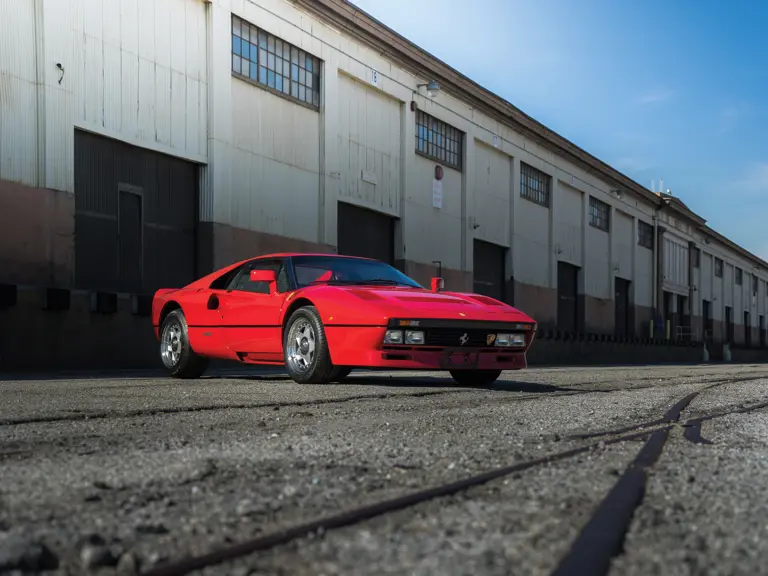
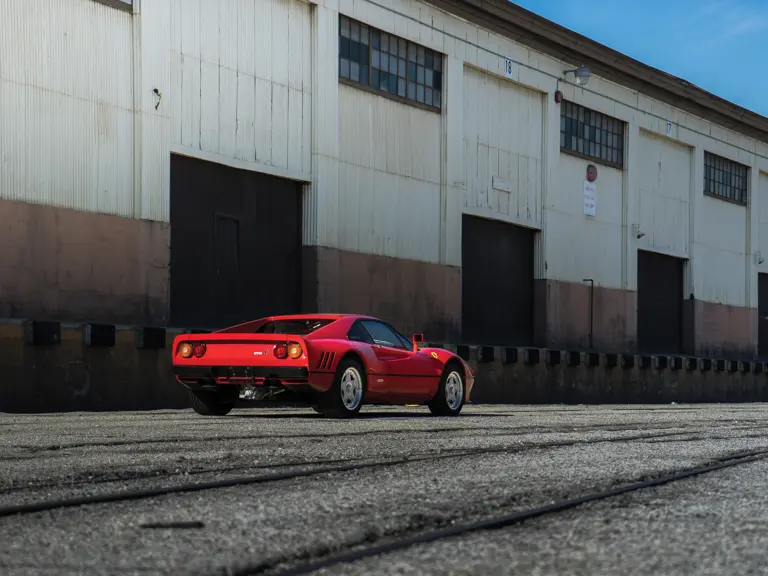
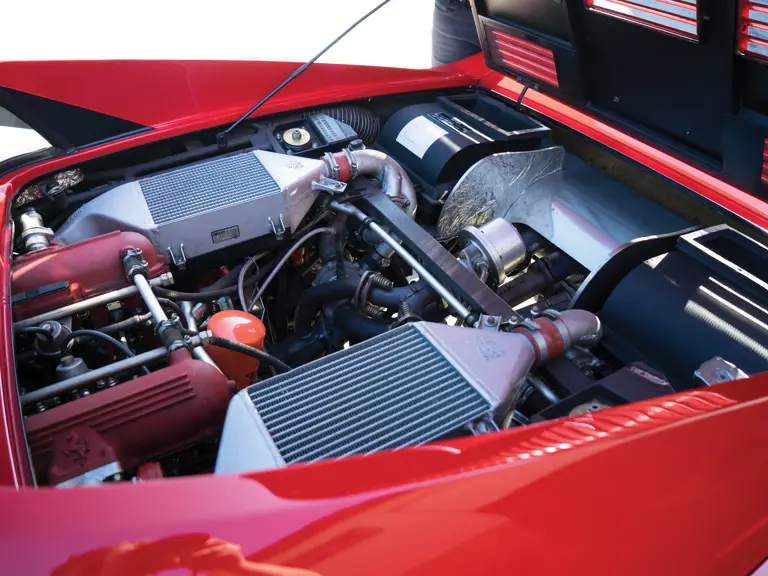
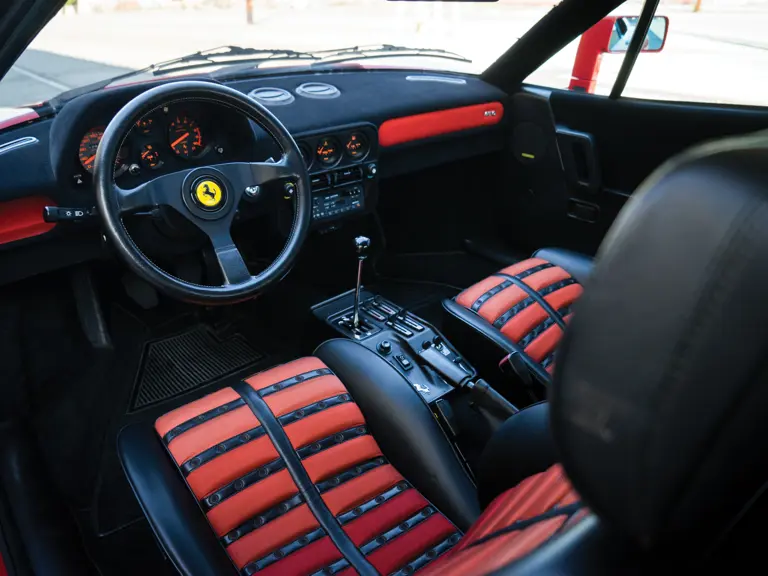
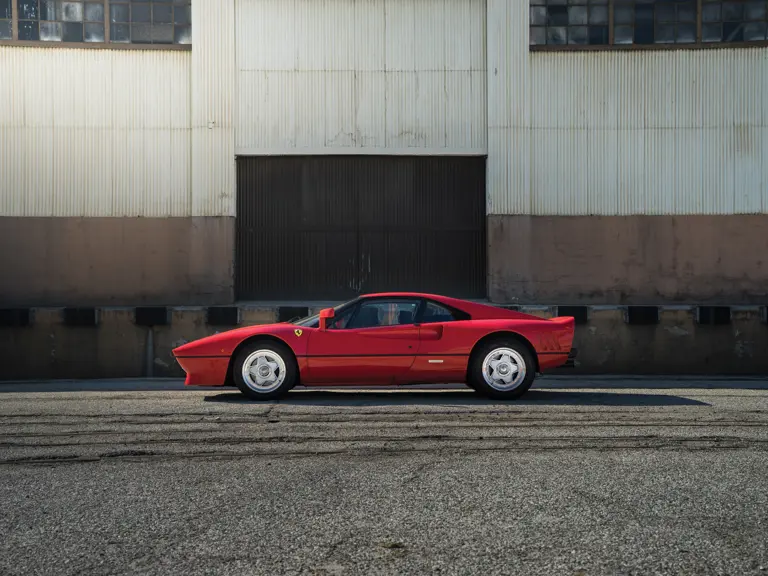
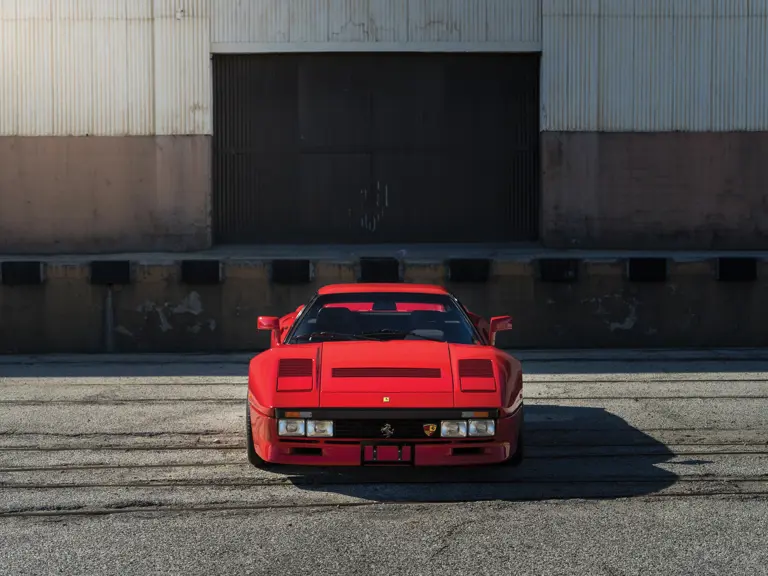
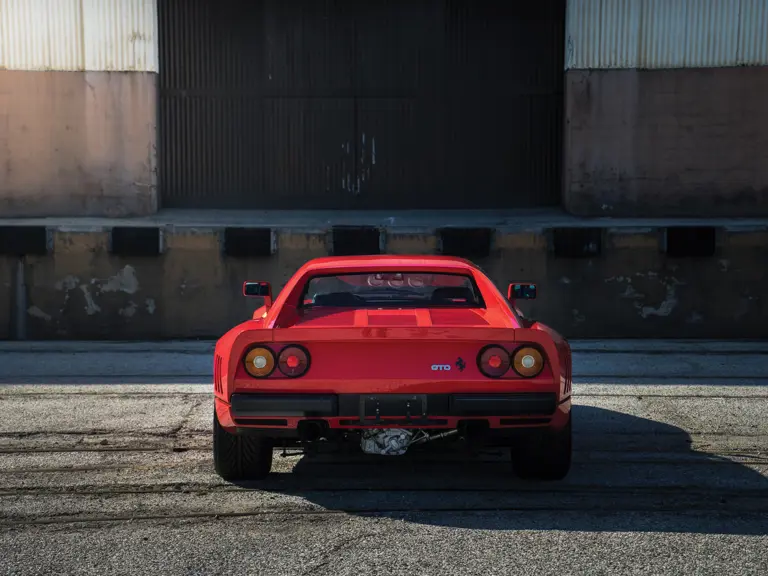
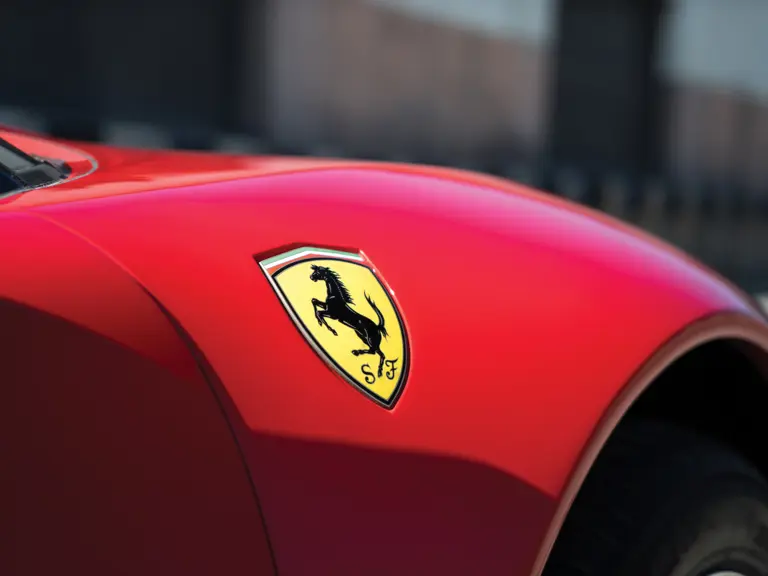
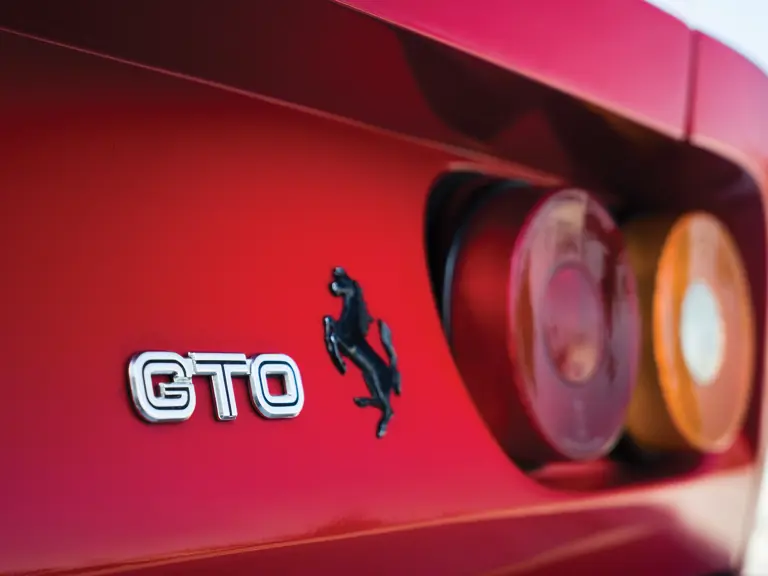
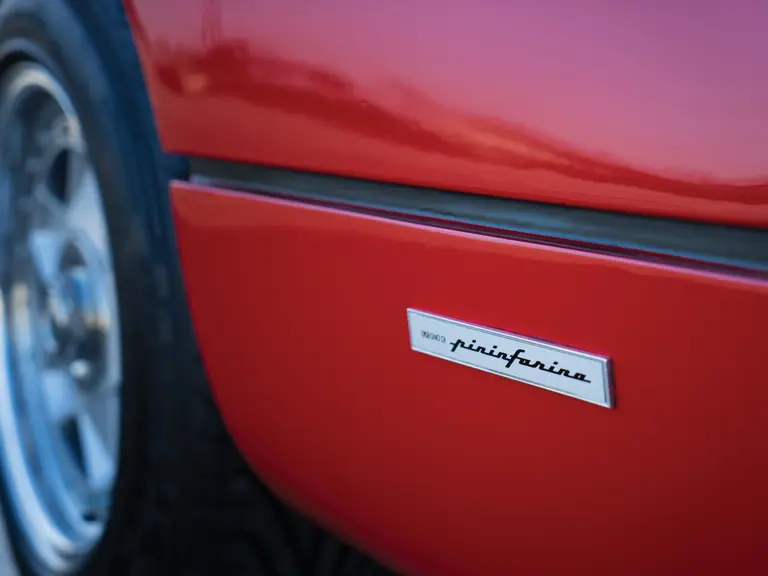
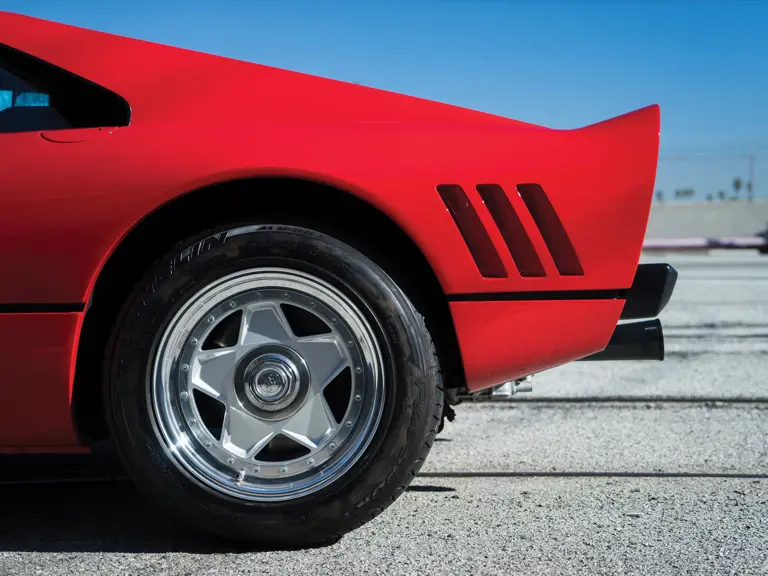
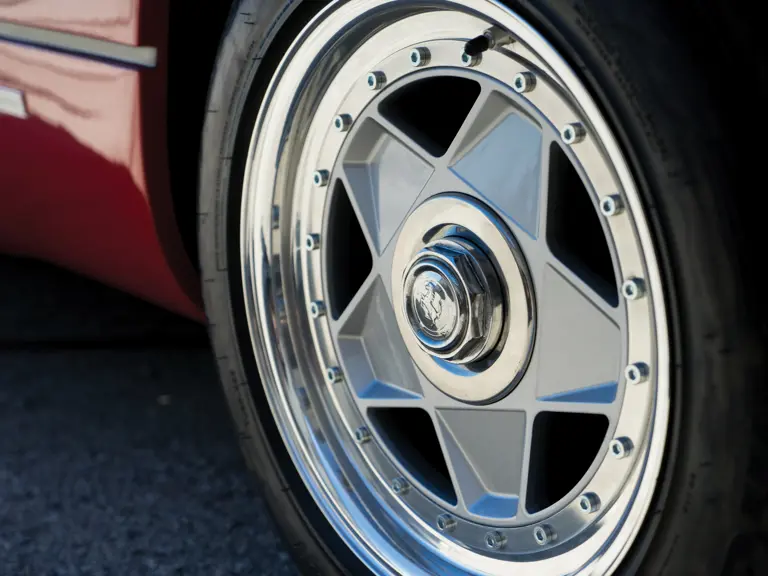
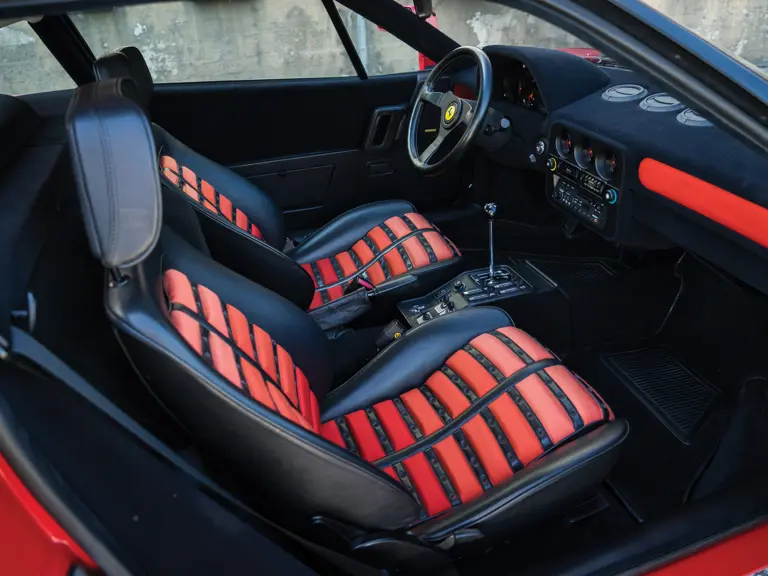
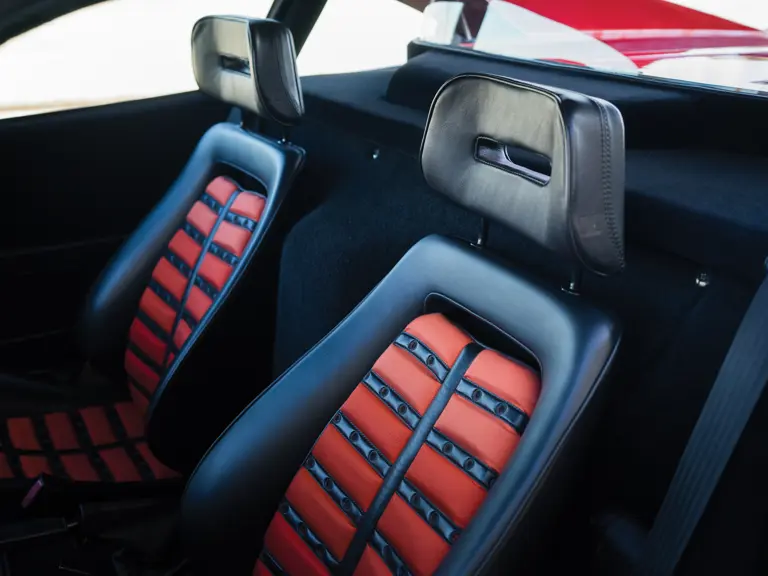
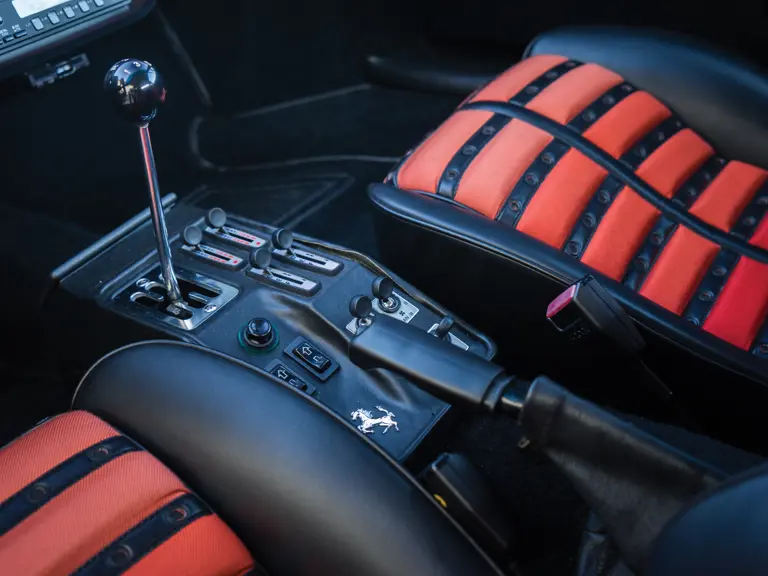
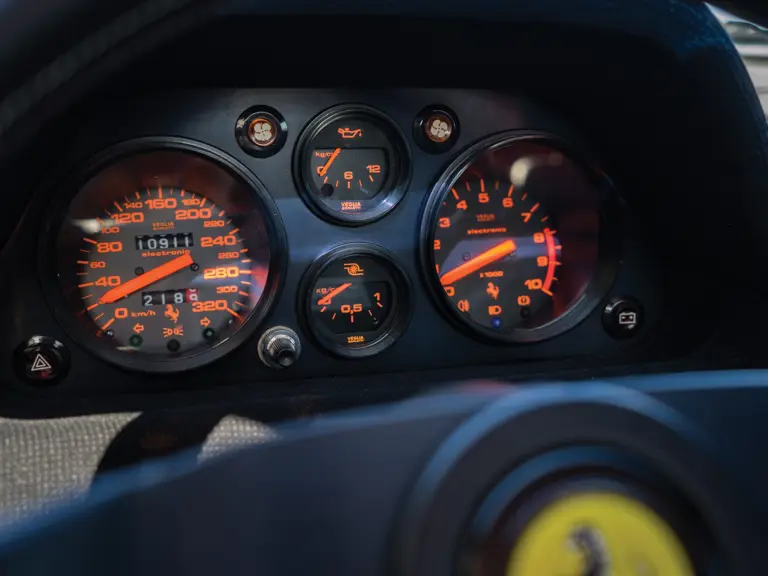
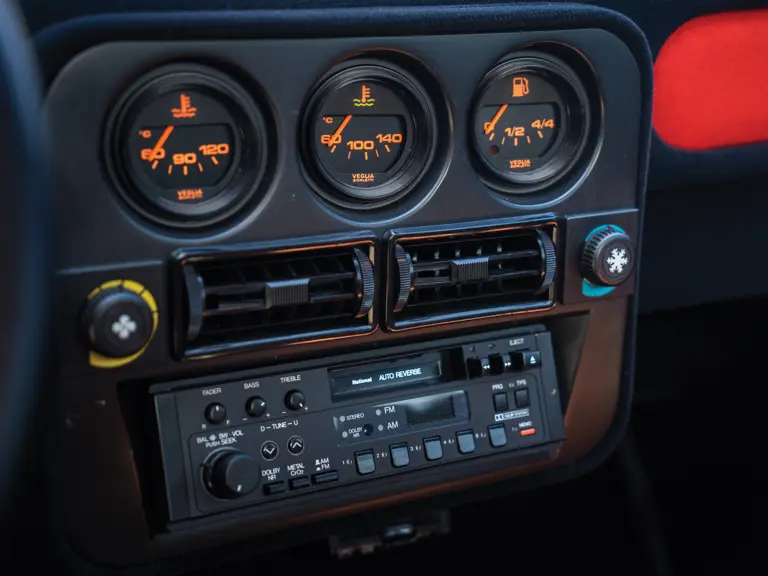
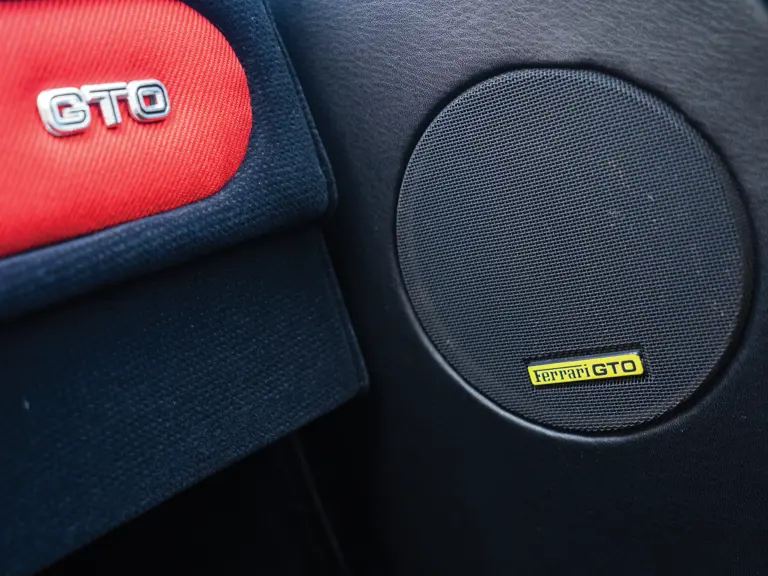
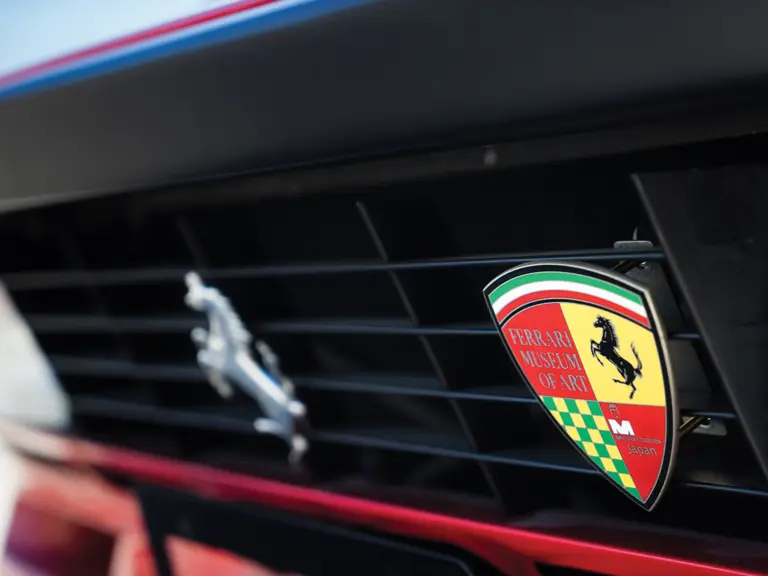
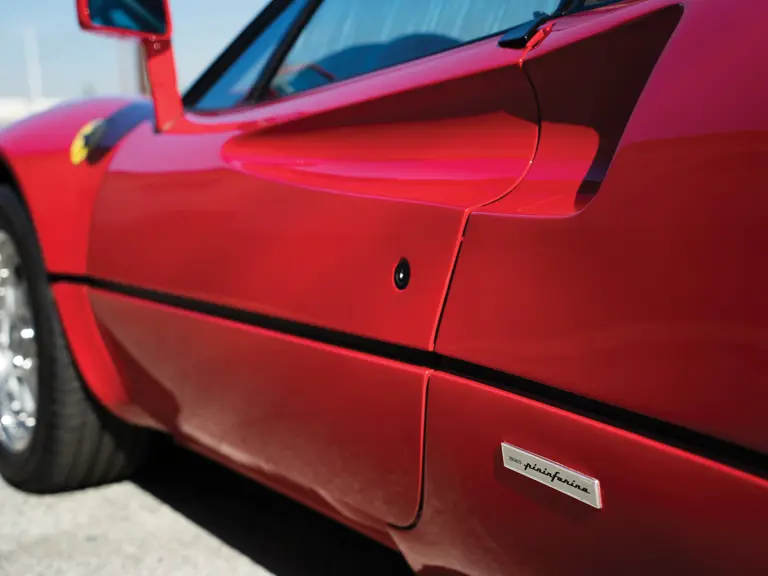
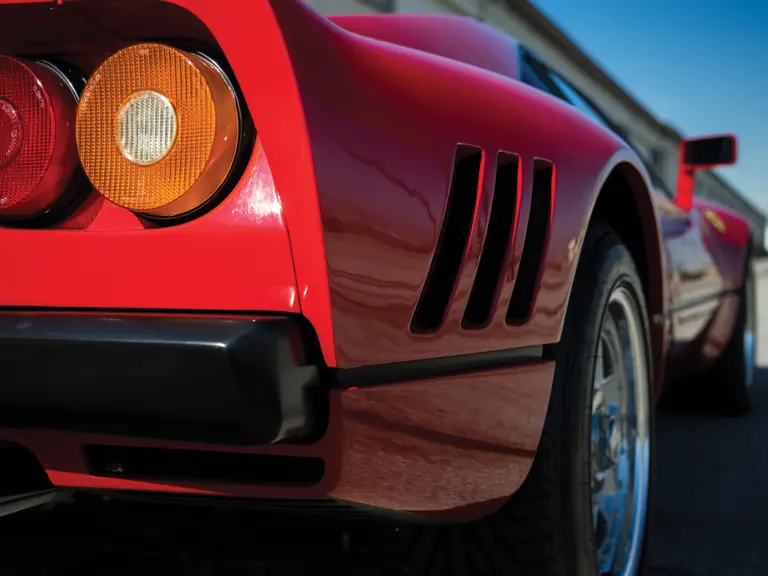
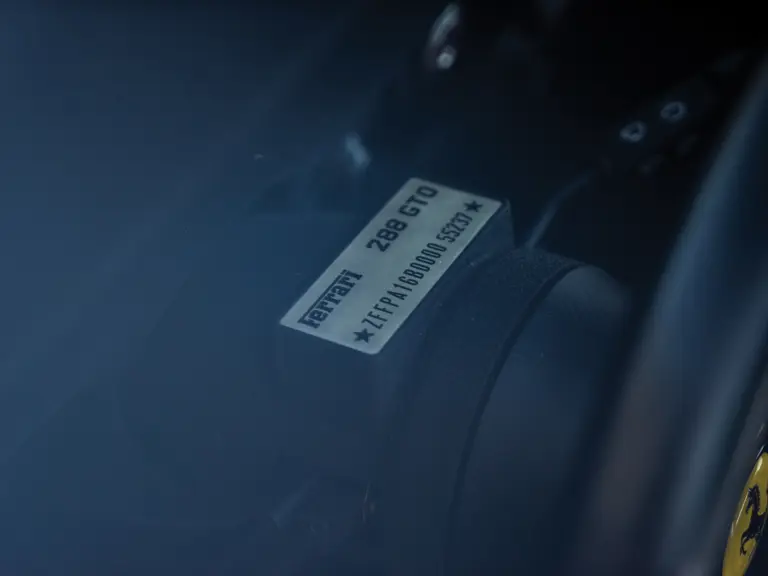
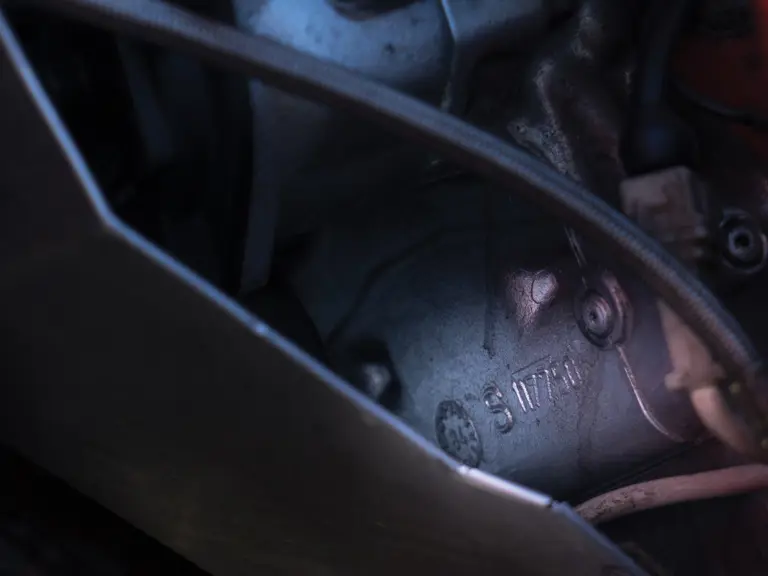
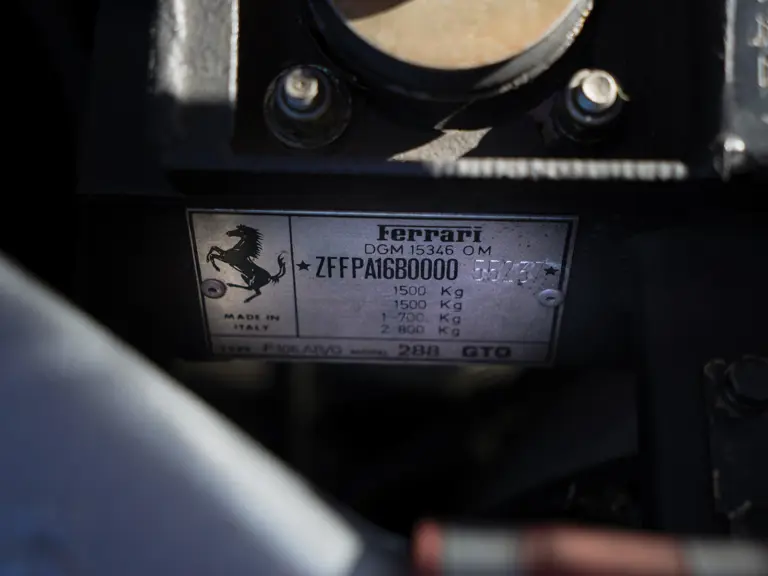
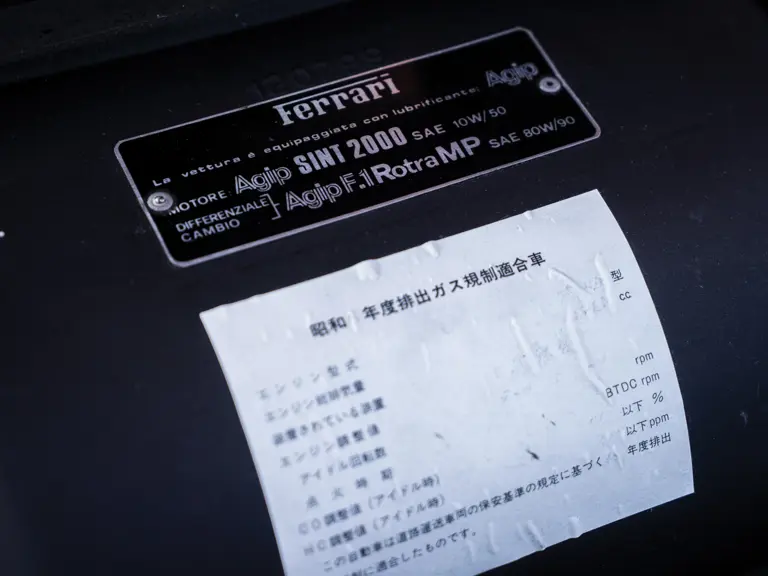
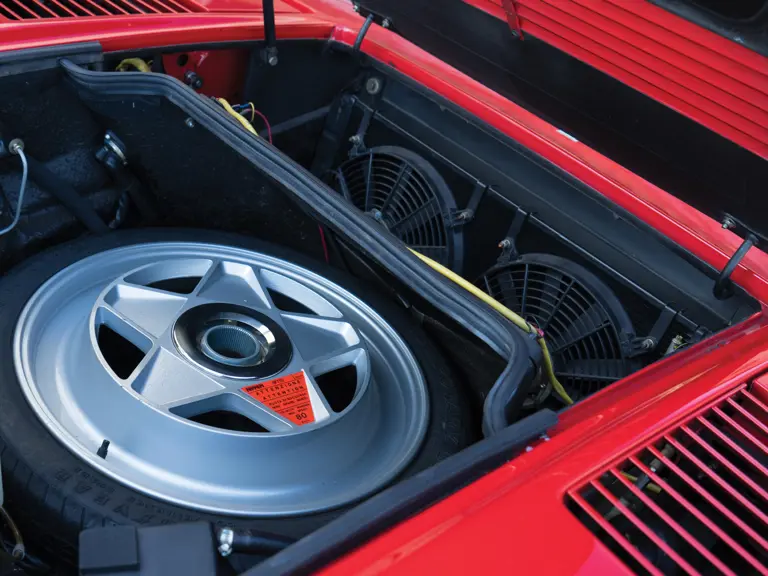
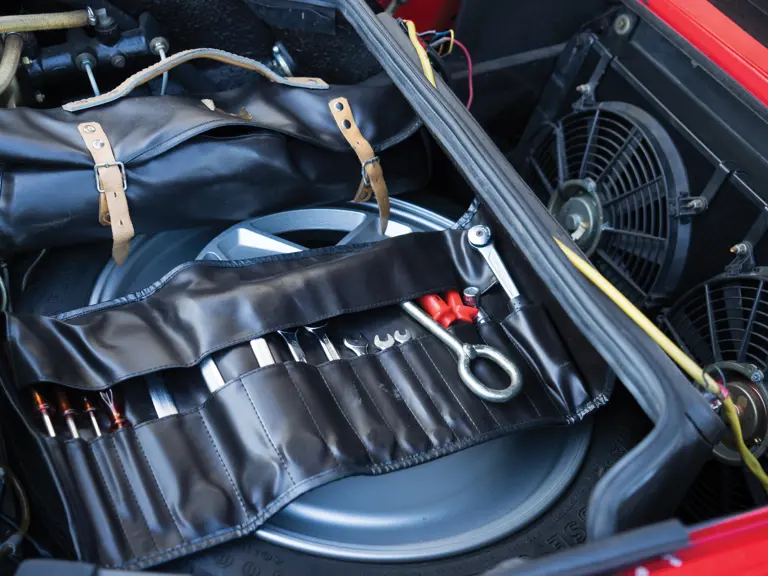
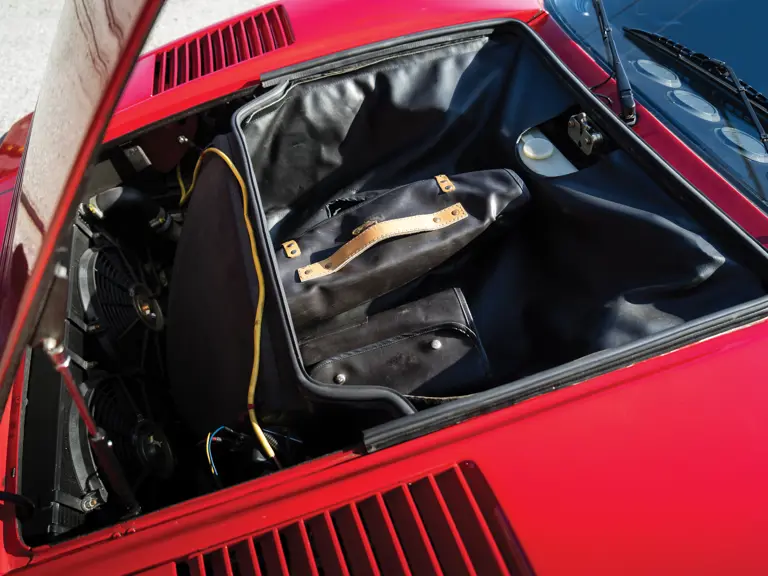
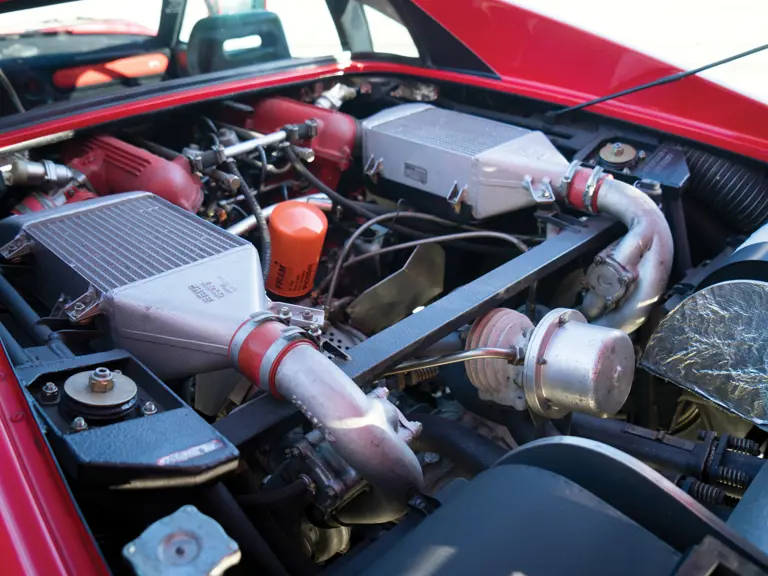
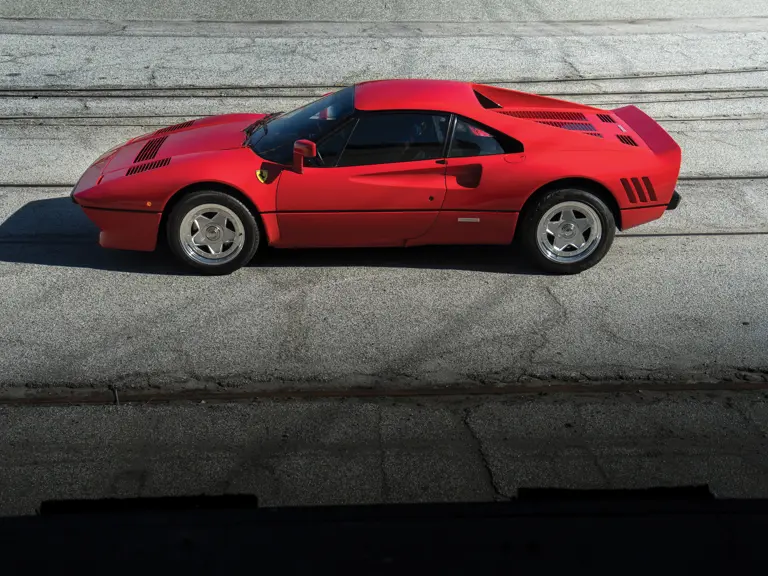

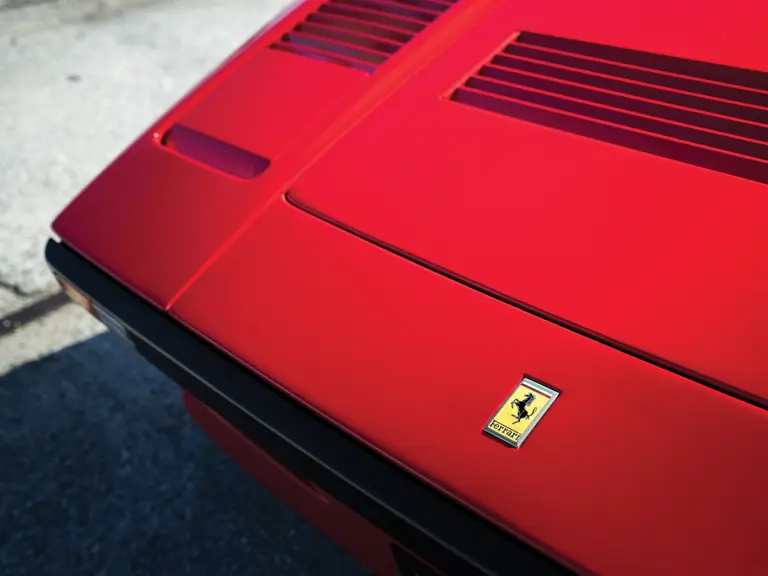
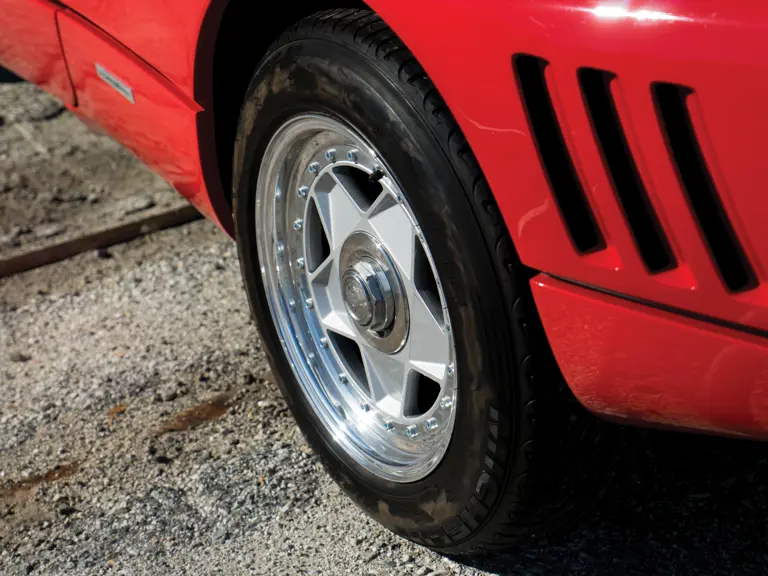
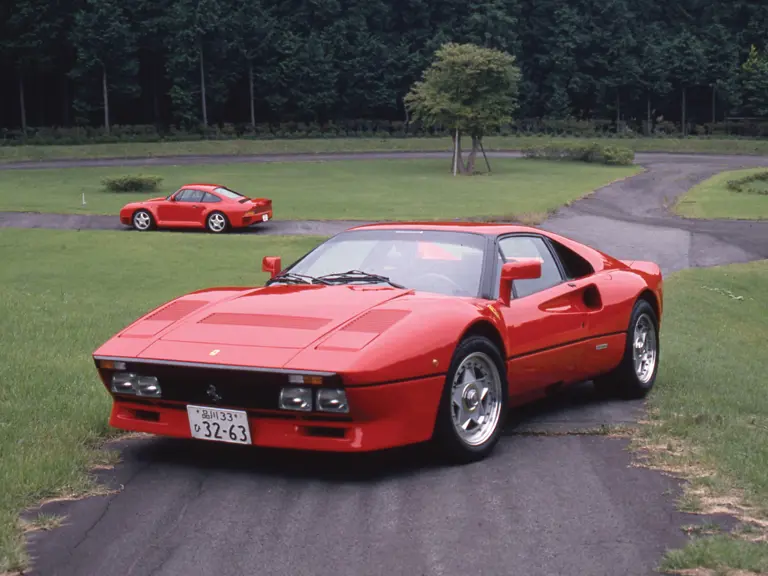
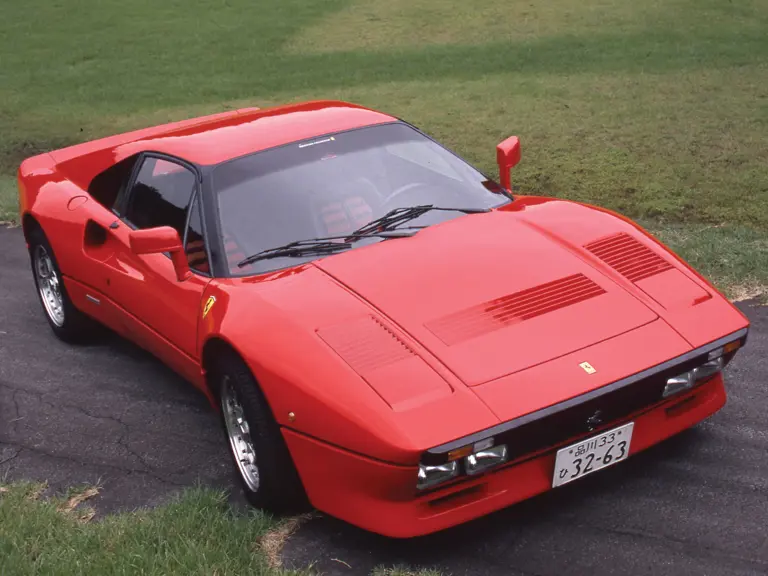
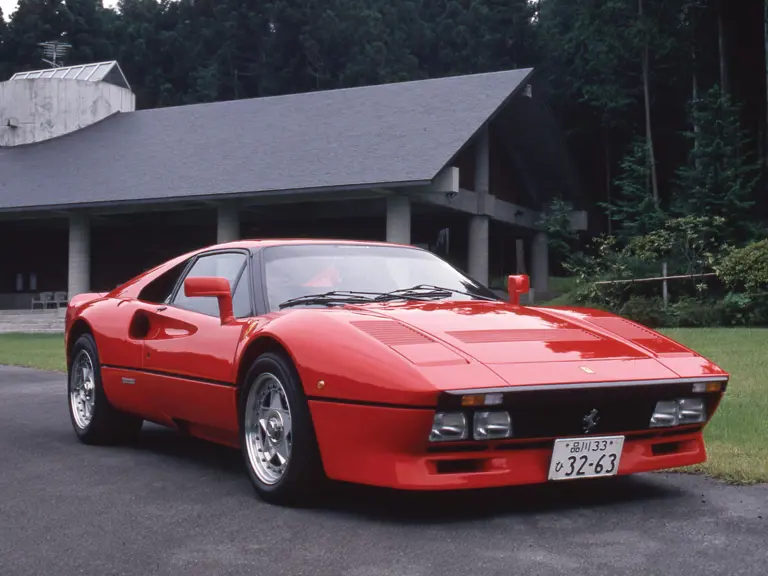
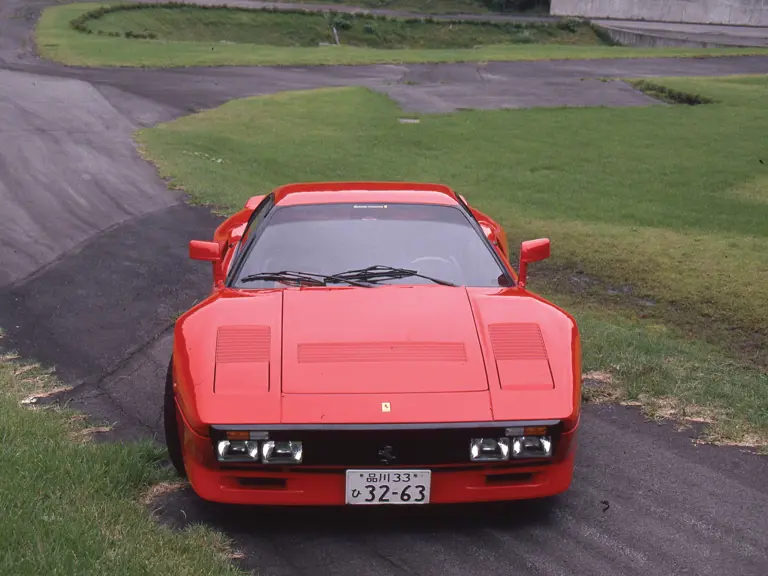
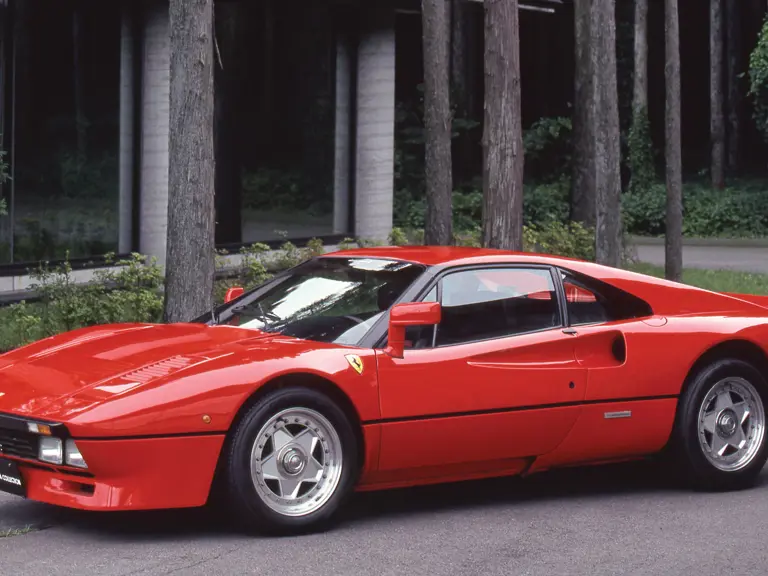
 | Amelia Island, Florida
| Amelia Island, Florida
